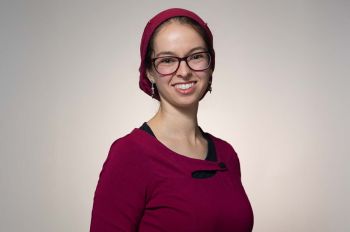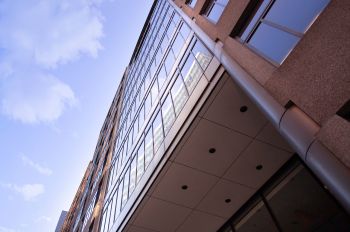Strubbe Writing Prize Winner Explores Remedies Against Employers Disclosing Medical Data

A paper exploring easier ways to attain legal remedies against employers who improperly disclose medical information won Chicago-Kent College of Law’s premier labor and employment law writing competition.
Ricardo Santiago ‘22 won the $5,000 Mary Rose Strubbe Labor & Employment Law Writing Prize for his paper titled “PIPA+: An Argument for the Creation of a Private Cause of Action to Protect Against Disclosure.”
Santiago’s paper began by outlining a 1987 Cook County, Illinois, case in which a woman took several leaves of absence to undergo a mastectomy. She later found out that her employer had revealed her medical information to co-workers, retired early, and sued for physical, mental, and emotional distress. The court recognized that those types of injuries were actionable.
Since that lawsuit, Santiago notes that several federal laws have been passed that protect employee medical data, including the Americans with Disabilities Act (ADA), the Family and Medical Leave Act, the Health Insurance Portability and Accountability Act (HIPAA), and the Genetic Information Nondiscrimination Act.
But he adds that “employees must often meet very specific requirements to receive protection under these statutes,” and, perhaps more importantly, wronged employees must defer to the legal mechanisms of a government agency when seeking relief, rather than pursue a private cause of action.
“The main concern is that you’re not in control—you don’t really have control of your own lawsuit,” says Santiago, adding, “These statutes were meant to protect against something else.”
The ADA, for example, was created to protect employees with disabilities, rather than address privacy concerns. HIPAA focuses primarily on the disclosure of medical information between employers and medical providers, rather than among co-workers.
As for common law, Santiago notes that the bar to prove such cases can be very high. Firstly, the medical disclosure has to be “highly offensive for a reasonable person for most actionable torts.” Additionally, the information that was disclosed has to be private, meaning revealing it to even a single co-worker could jeopardize a claim. And perhaps most importantly, claimants have to prove physical or psychological damages, which can be difficult to do for such things as emotional distress.
While exploring solutions, Santiago highlights a pair of Illinois statutes that not only lowered the bar on proving damages, they eliminated it completely.
The state’s Biometric Information Protection Act, for example, allows for suing companies that acquire biometric information (like fingerprints or facial features) without consent in writing. A 2019 appellate court decision stated that those suing under the law don’t have to prove damages at all—they just need to show that the information was taken from them without their consent. The result has been a spate of class action lawsuits against organizations or employers that took biometric information without written consent.
“The judge said, ‘If they collect your info, you’re aggrieved,’” Santiago says. “The purpose of the statute is to prevent harm in the first place.”
Additionally, the Illinois AIDS Confidentiality Act, covering the disclosure of medical testing for AIDS, also allows the aggrieved to seek recovery without proving actual damages, Santiago adds.
“The paper thoroughly explains the weaknesses of existing federal and state legal structures for protecting employees' private medical information,” the Strubbe Prize selection committee wrote of Santiago’s submission. “It then proposes a practical, yet innovative and elegant solution that takes advantage of an existing Illinois statute and transforms it into a powerful shield for this kind of sensitive employee data.”
Santiago was born in Mexico City and raised in Chicago. He received an associate’s degree in fine arts from Wilbur Wright College in Chicago and a bachelor’s degree in communication, media, and theater from Northeastern Illinois University. Prior to graduating from Chicago-Kent in May 2022, he externed with Illinois district court Judge Mary Rowland. This fall, he will start as an associate at Schiller, DuCanto & Fleck, a Chicago-based family law firm.
The Strubbe Prize is awarded annually for the best piece of legal writing in labor and employment law by a Chicago-Kent student. Strubbe graduated with honors from Chicago-Kent in 1981 and worked in private practice before returning to the college in 1994 to teach and direct the Legal Research and Writing Program. Following Strubbe’s retirement in 2017, the Chicago Federation of Labor, faculty, and alumni joined together to establish the $5,000 prize.



